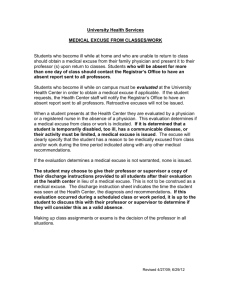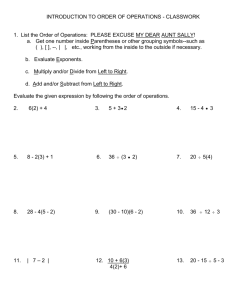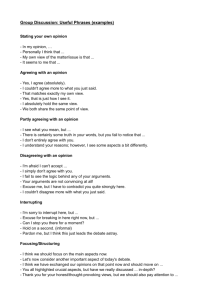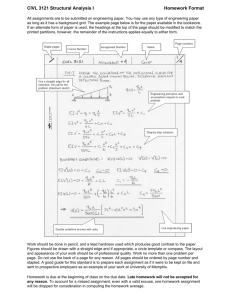BBC Learning English
advertisement
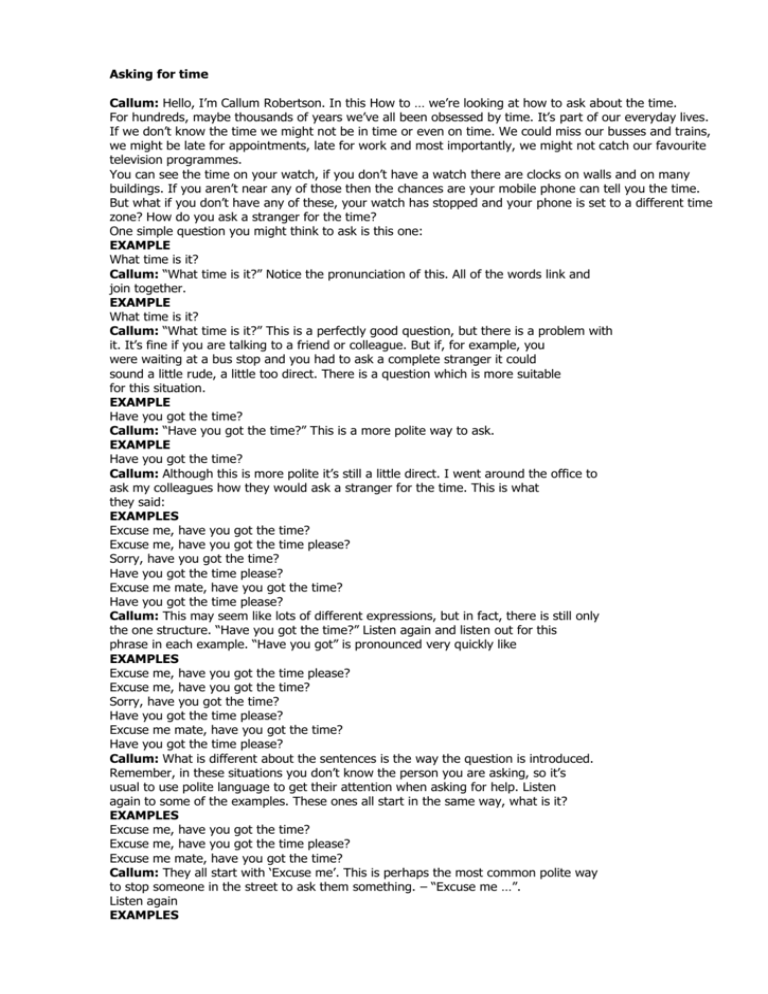
Asking for time Callum: Hello, I’m Callum Robertson. In this How to … we’re looking at how to ask about the time. For hundreds, maybe thousands of years we’ve all been obsessed by time. It’s part of our everyday lives. If we don’t know the time we might not be in time or even on time. We could miss our busses and trains, we might be late for appointments, late for work and most importantly, we might not catch our favourite television programmes. You can see the time on your watch, if you don’t have a watch there are clocks on walls and on many buildings. If you aren’t near any of those then the chances are your mobile phone can tell you the time. But what if you don’t have any of these, your watch has stopped and your phone is set to a different time zone? How do you ask a stranger for the time? One simple question you might think to ask is this one: EXAMPLE What time is it? Callum: “What time is it?” Notice the pronunciation of this. All of the words link and join together. EXAMPLE What time is it? Callum: “What time is it?” This is a perfectly good question, but there is a problem with it. It’s fine if you are talking to a friend or colleague. But if, for example, you were waiting at a bus stop and you had to ask a complete stranger it could sound a little rude, a little too direct. There is a question which is more suitable for this situation. EXAMPLE Have you got the time? Callum: “Have you got the time?” This is a more polite way to ask. EXAMPLE Have you got the time? Callum: Although this is more polite it’s still a little direct. I went around the office to ask my colleagues how they would ask a stranger for the time. This is what they said: EXAMPLES Excuse me, have you got the time? Excuse me, have you got the time please? Sorry, have you got the time? Have you got the time please? Excuse me mate, have you got the time? Have you got the time please? Callum: This may seem like lots of different expressions, but in fact, there is still only the one structure. “Have you got the time?” Listen again and listen out for this phrase in each example. “Have you got” is pronounced very quickly like EXAMPLES Excuse me, have you got the time please? Excuse me, have you got the time? Sorry, have you got the time? Have you got the time please? Excuse me mate, have you got the time? Have you got the time please? Callum: What is different about the sentences is the way the question is introduced. Remember, in these situations you don’t know the person you are asking, so it’s usual to use polite language to get their attention when asking for help. Listen again to some of the examples. These ones all start in the same way, what is it? EXAMPLES Excuse me, have you got the time? Excuse me, have you got the time please? Excuse me mate, have you got the time? Callum: They all start with ‘Excuse me’. This is perhaps the most common polite way to stop someone in the street to ask them something. – “Excuse me …”. Listen again EXAMPLES Excuse me, have you got the time? Excuse me, have you got the time please? Excuse me mate, have you got the time? Callum: The second speaker also adds the ‘please’ at the end of her question. This adds an extra layer of politeness. EXAMPLE Excuse me, have you got the time, please? Callum: So, the phrase ‘excuse me’ is used to start a conversation or ask a question to a stranger. There is also another way to do this. Listen to this speaker: EXAMPLE Sorry, have you got the time? Callum: “Sorry”. This word is usually an apology, but it can also be used as a polite way to interrupt someone to ask them a question. EXAMPLE Sorry, have you got the time? Callum: We’ve heard a number of different examples and there’s one more thing to listen out for. Listen to one of the examples again. The speaker says something a little different. What does he say after ‘excuse me’ EXAMPLE Excuse me mate, have you got the time? Callum: After ‘excuse me’ he uses the word ‘mate’. EXAMPLE Excuse me mate, have you got the time? Callum: ‘Mate’ is an informal word for ‘friend’. Your best friend is also your best ‘mate’. However, it is a word that strangers use to address each other, particularly men. EXAMPLE Excuse me mate, have you got the time? Callum: This is very typical in informal British English. However it can sound unusual and not very natural to use it with people from other countries. So you might hear it in Britain but unless you are very confident and fluent it’s perhaps best not to use it. That’s nearly the end of this ‘How to’, before I go a reminder of today’s language. We’ve looked at how to ask for the time. We’ve heard a very basic question which perhaps is a little too direct to ask a stranger: EXAMPLE What time is it? Callum: Then we heard that there is one main expression to use: EXAMPLE Have you got the time? Callum: “have you got the time”. This phrase can be used with different expressions to give it a more suitable level of politeness. EXAMPLES Excuse me, have you got the time please? Sorry, have you got the time? Callum: Using the words “excuse me” or “sorry” before the questions and also adding the word “please” at the end makes the question suitable when asking someone you don’t know. That’s all from How to, until next time, goodbye.

